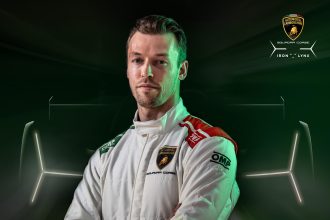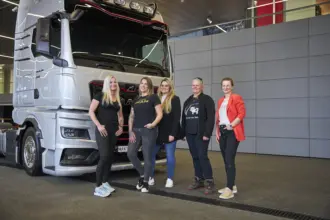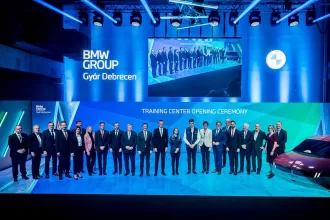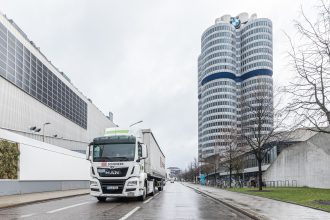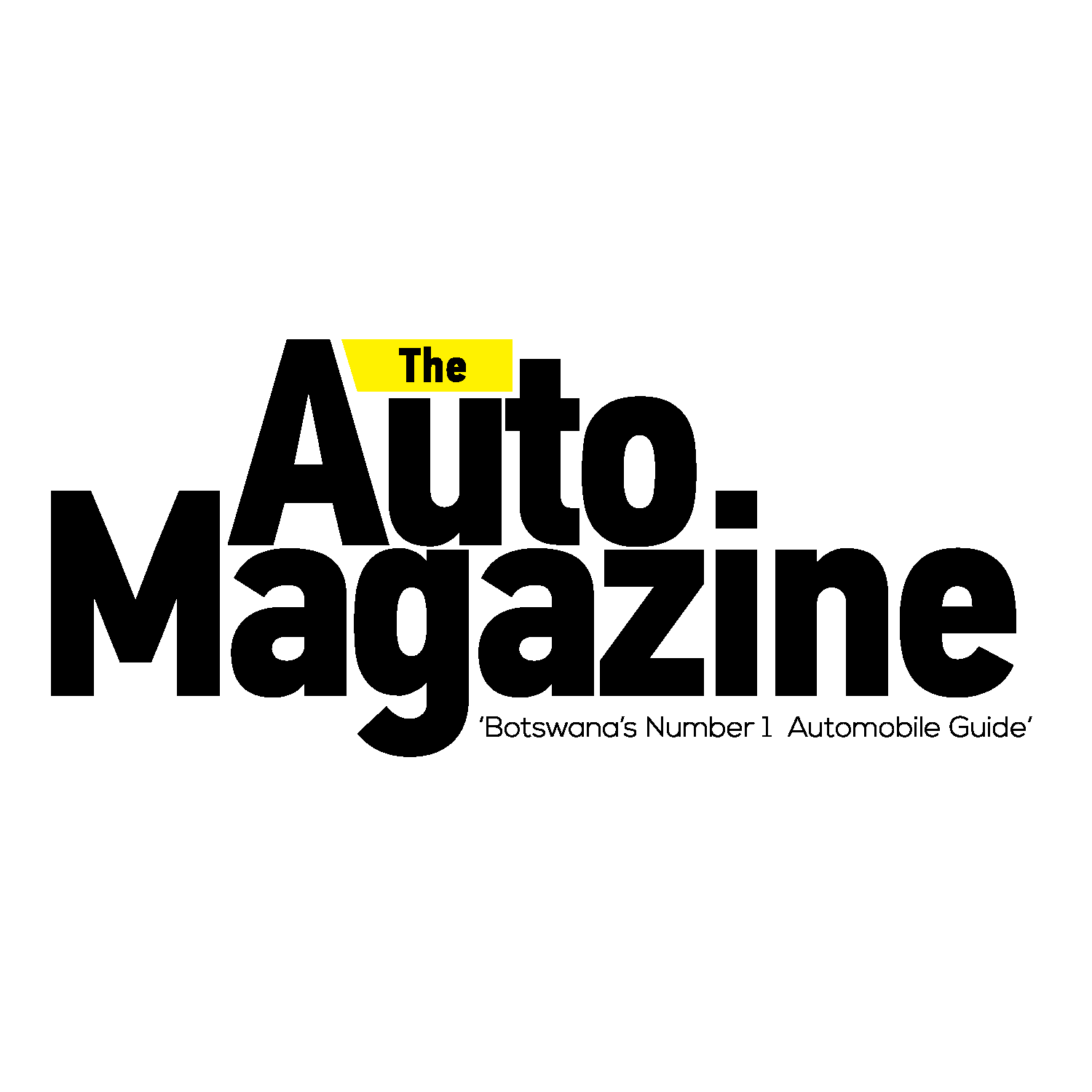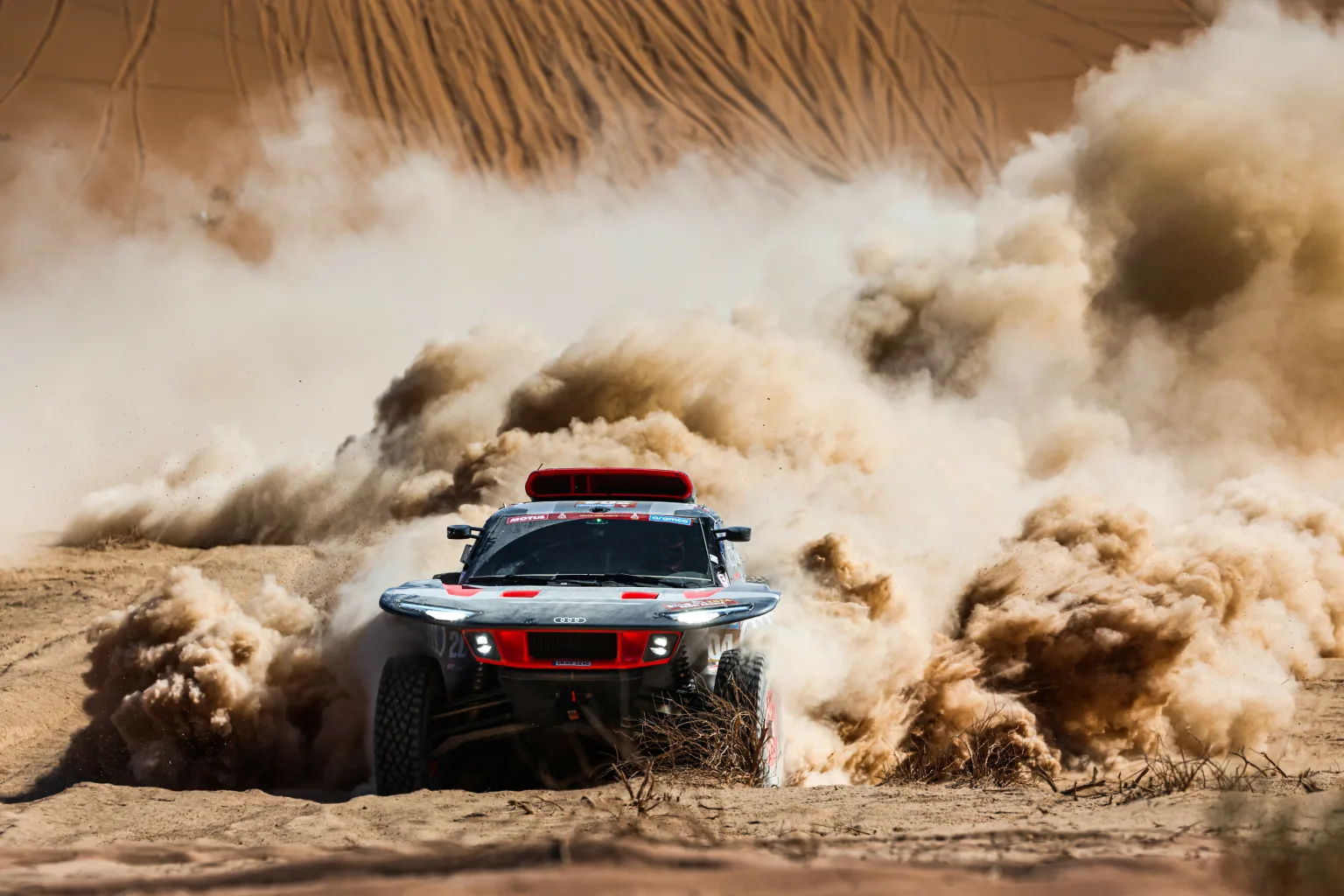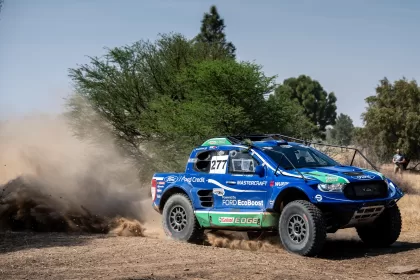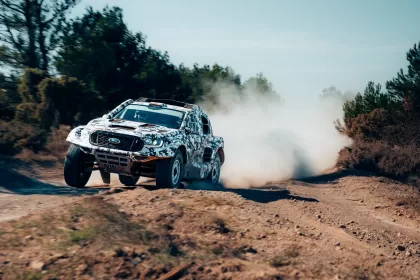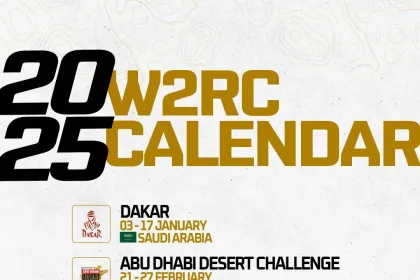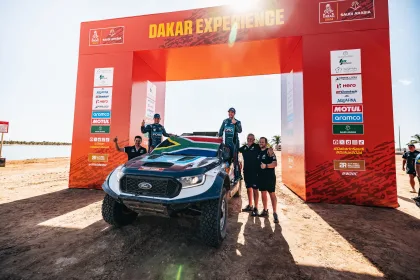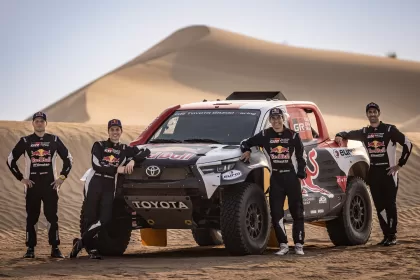- Audi RS Q e-tron wins toughest desert rally with innovative drive system
- Carlos Sainz/Lucas Cruz achieve fourth personal victory
- Gernot Döllner: “Audi has once again set a milestone”
Audi makes history: for the first time, a low-emission prototype with an electric drive, high-voltage battery and energy converter wins the world’s toughest desert rally with the Audi RS Q e-tron. The Spaniards Carlos Sainz/Lucas Cruz secured Audi’s first victory in the Dakar Rally after around 7,900 kilometers with a lead of 1h 20min. Mattias Ekström/Emil Bergkvist also crossed the finish line.
“Congratulations to Team Audi Sport on winning the Dakar Rally,” said Gernot Döllner, Chairman of the Board of Management of AUDI AG. “Audi has once again set a milestone in motorsport. Winning the world’s toughest desert rally with an electrified drive is a visible ‘Vorsprung durch Technik’ and points the way to our electric future.” The Audi RS Q e-tron has electric all-wheel drive. The energy supply is ensured by a high-voltage battery and an energy converter that runs on residual fuel-based reFuel, thus saving 60 percent of CO2 emissions compared to conventional fuels.
“With our revolutionary electrified drive, we have overcome one of the biggest challenges in motorsport after just three years. We are thus continuing a long series of pioneering achievements that have always characterized Audi in four decades of motorsport. I would like to thank the entire team for this outstanding performance in a particularly tough edition of the Dakar Rally,” says Oliver Hoffmann, Member of the Board of Management of AUDI AG, Technical Development. At the Dakar Rally, Audi was up against the two brands Toyota and Ford as well as the experienced opponents from Prodrive, who proved to be tough challengers.
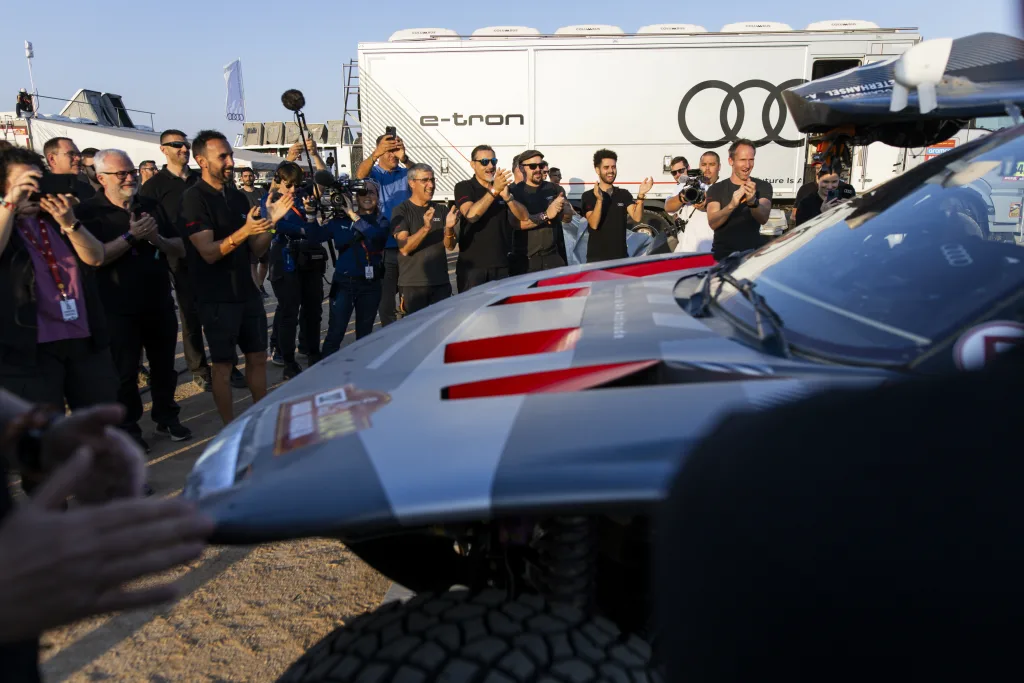
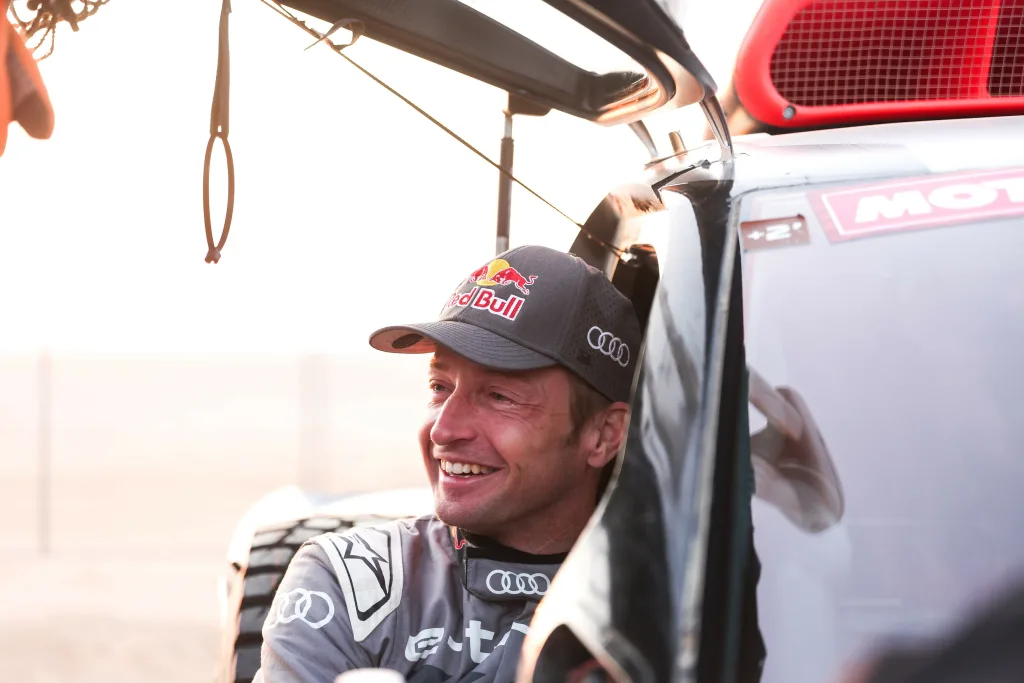
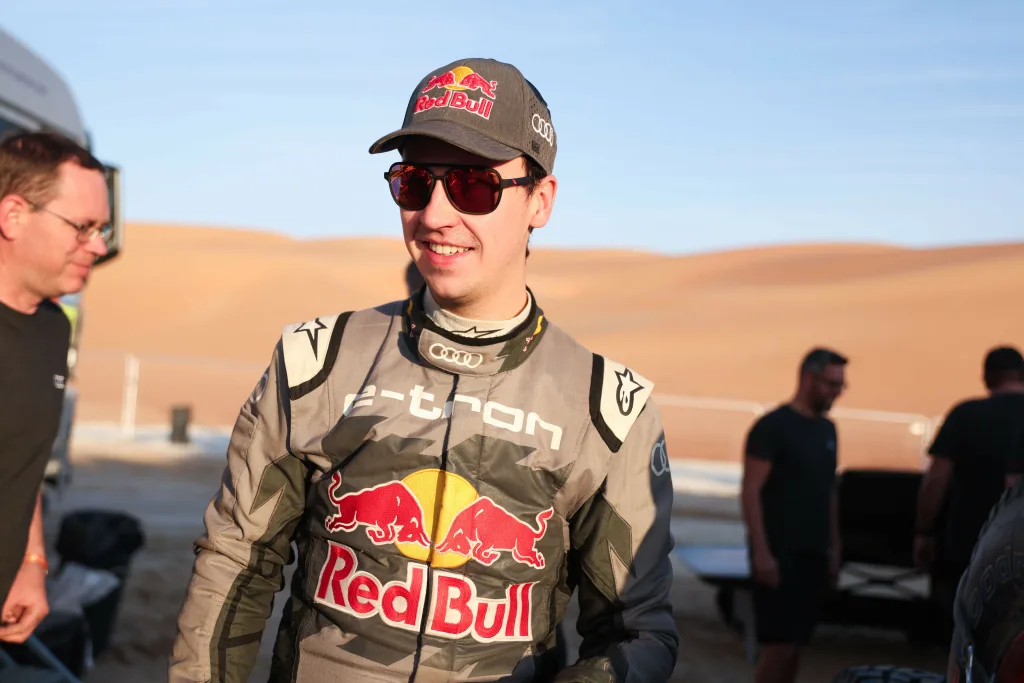
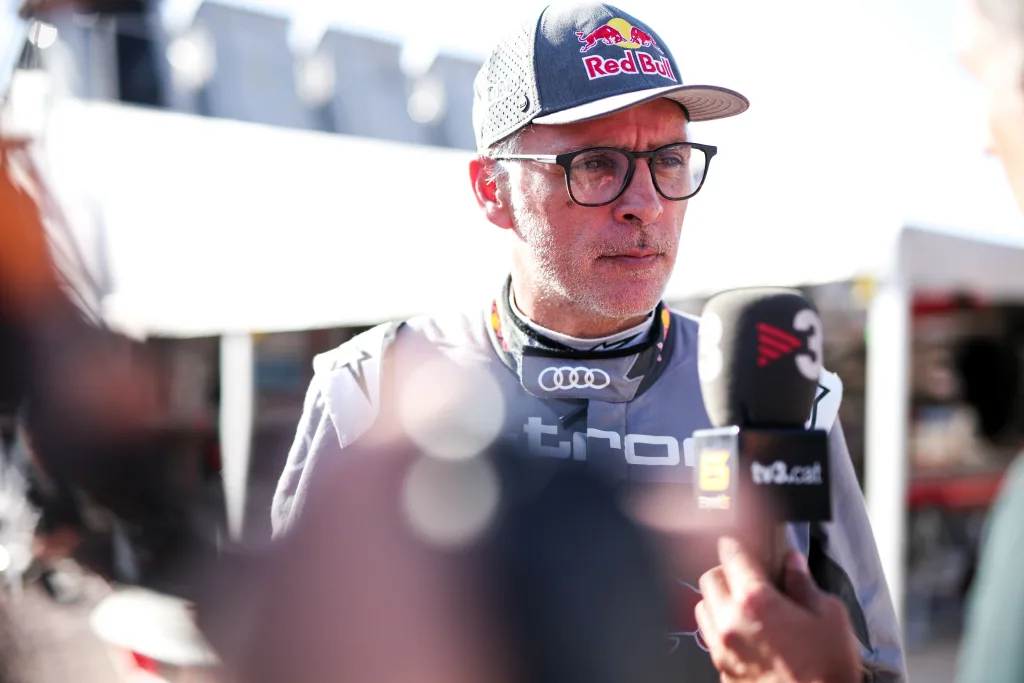
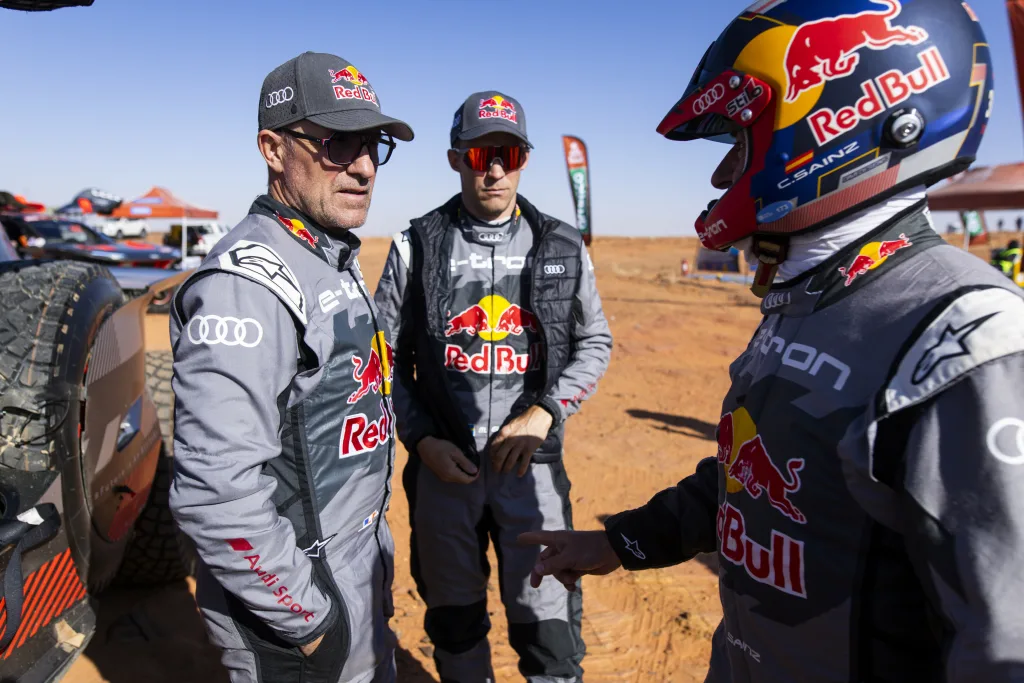
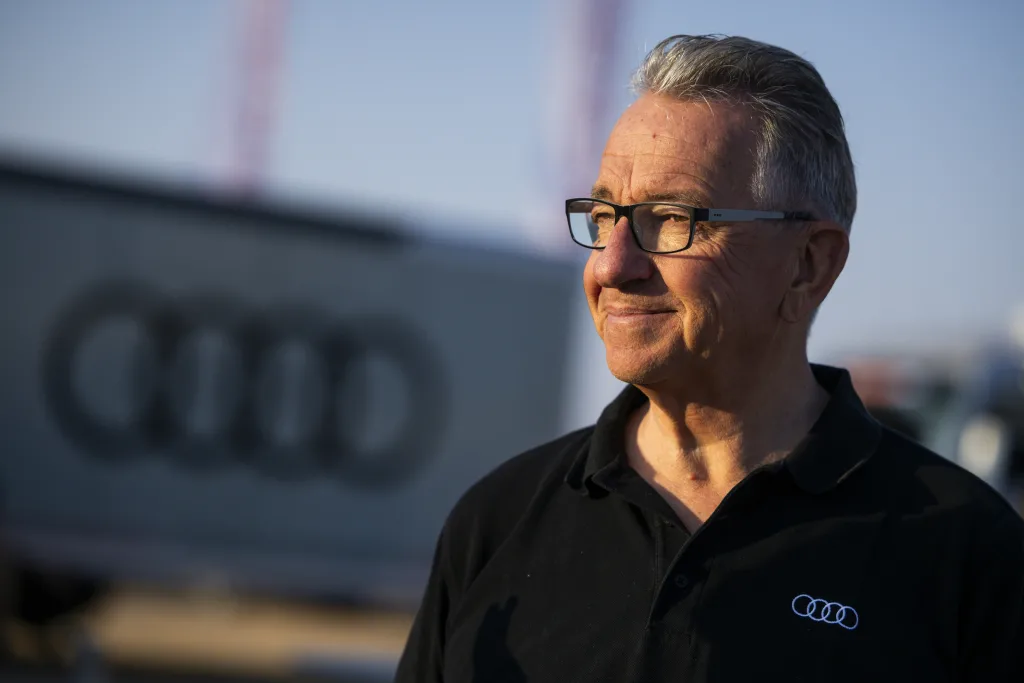
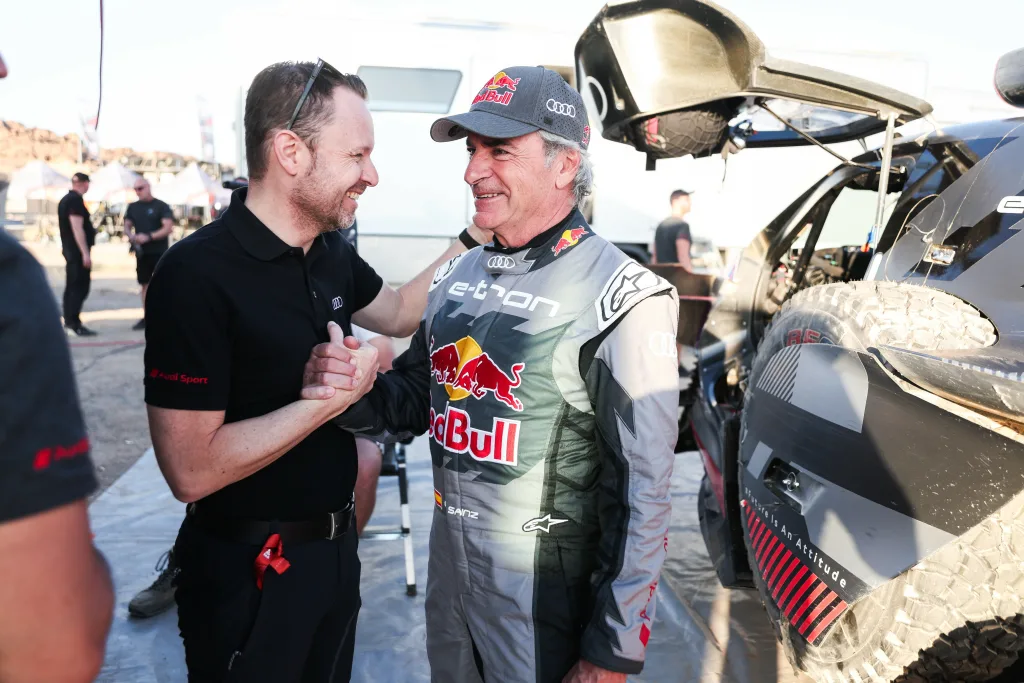
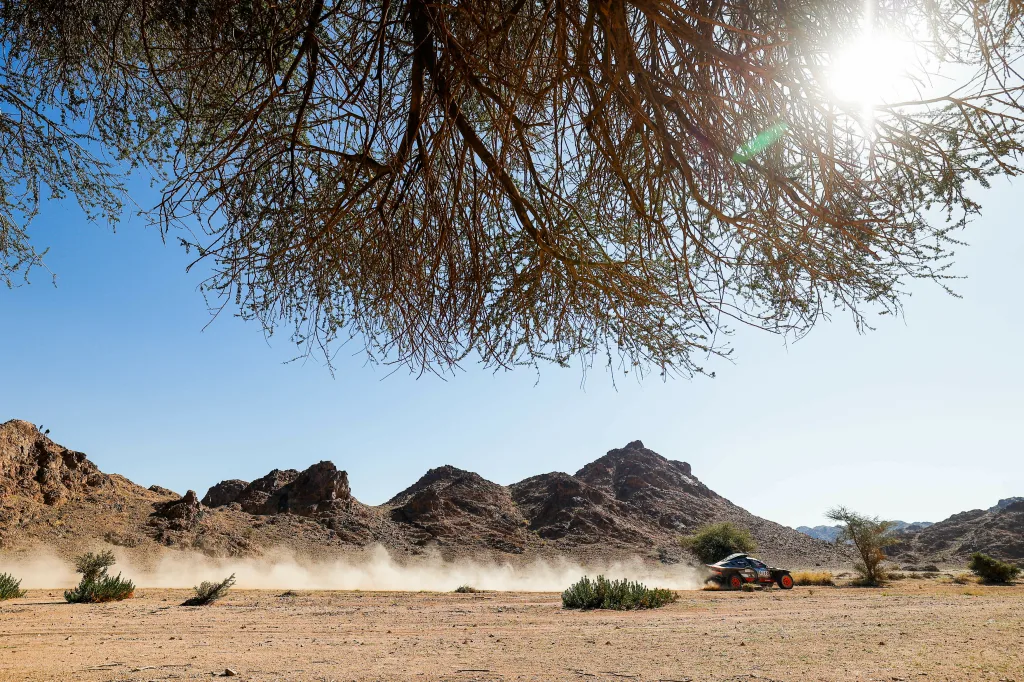
Carlos Sainz/Lucas Cruz secured their big lead after having been in the lead without interruption since the sixth stage. For the two Spaniards, who finished first in 2010, 2018 and 2020, this is their fourth success with a different brand, including the second from the Volkswagen Group. However, two-time World Rally Champion Sainz and his experienced co-driver could not be sure until shortly before the end. With Sébastien Loeb/Fabian Lurquin from Team BRX, they had strong pursuers who continued to close the gap until their car suffered damage on the penultimate day. “That was an overwhelming team performance,” said Head of Audi Motorsport Rolf Michl. “Everyone pulled together to make this historic result possible for Audi. A big thank you to this wonderful team. Today we have written a new chapter for Audi, but also in the history of the Dakar Rally.”
Daily stages of often more than 400 kilometers, two marathon stages with limited or even no service, as well as 4,600 timed kilometers and 7,883 kilometers in total characterized the 2024 Dakar Rally. Sharp scree and gravel roads, but also towering chains of dunes in the Empty Quarter of the Arabian Peninsula and often difficult navigation demanded everything from the teams. Carlos Sainz, who at 61 looks back on a rally career spanning around four decades, recorded a total of eight days in the lead with Lucas Cruz on the twelve stages.
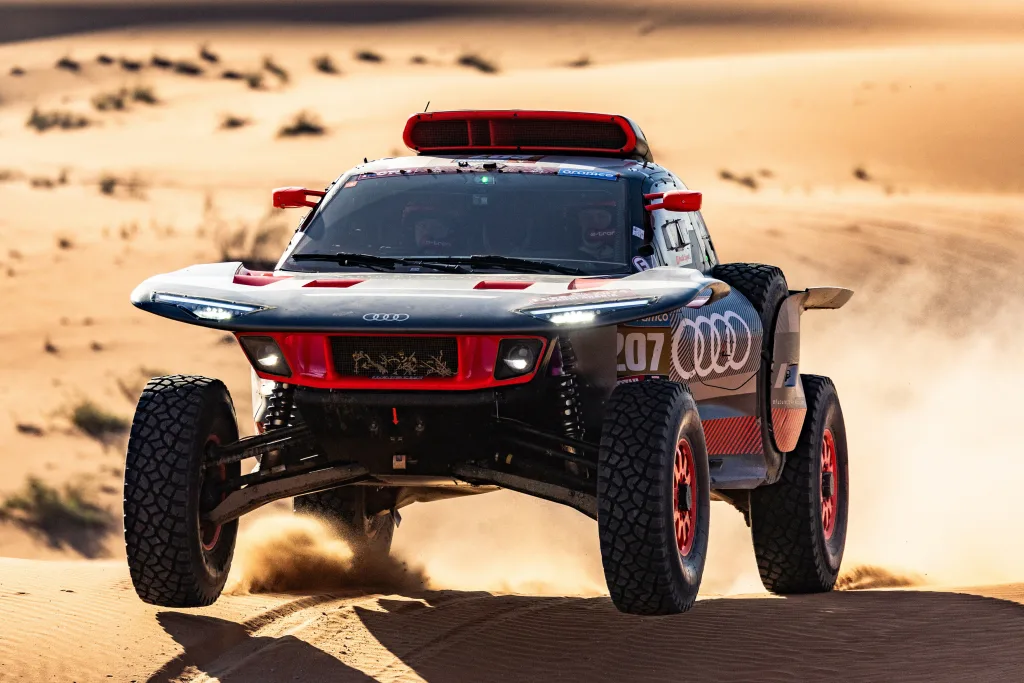
The two other Audi crews had also put in a strong performance early on. The Swedes Mattias Ekström/Emil Bergkvist won the prologue at the beginning and improved to second place behind Sainz/Cruz by the rest day after six stages. However, a defect on the rear axle on the seventh stage cost them all their chances. Stéphane Peterhansel, record holder with 14 Dakar victories, was in sixth place shortly before the halfway point after his 50th stage win in the car and his 83rd overall. A defect in the hydraulic system threw him and his French compatriot Edouard Boulanger back to 22nd place on the sixth stage.
Both teams then put themselves at the service of Team Audi Sport. Head of Audi Motorsport Rolf Michl and Sven Quandt, Team Principal of the entry partner Q Motorsport, implemented a perfect strategy in a demanding 46th edition of the rally. Whether it was tactically dropping back before the second marathon stage to avoid having to open the route or supporting the leaders Carlos Sainz/Lucas Cruz, the management was able to rely on its strong driver crews at all times. The team personnel also worked tirelessly and reliably during the physically demanding, long and tough rally. Ekström/Bergkvist finished the event in the top 50.
Audi Sport has let the highly efficient Audi RS Q e-tron mature so that it is capable of winning within just three years. Under the technical direction of Dr. Leonardo Pascali, Audi Sport set the next historic milestone with the innovative drive: after the quattro all-wheel drive changed rallying forever in the 1980s and subsequently clinched victories and titles galore on the circuit, Audi demonstrated great innovative strength at Le Mans. The efficient TFSI drive, the electrified e-tron quattro all-wheel drive and individual technologies such as the LED matrix light and the Audi laser light stand for a high level of innovative strength and “Vorsprung durch Technik”. Audi’s first all-electric racing car then made its debut in Formula E, before the brand took on the extreme challenges of the Dakar Rally and successfully completed it as the first manufacturer with an electric drive.

